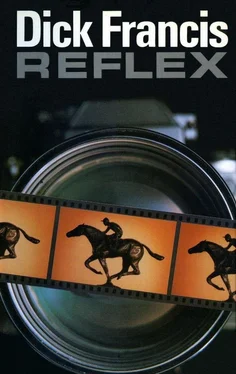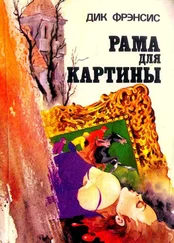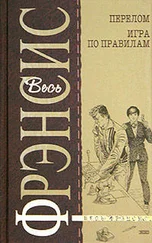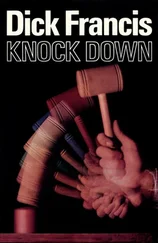I shut the lid, and we locked the shed and went back into the house.
‘You don’t really think,’ Steve said doubtfully, ‘That the burglars were after Dad’s pictures? I mean, they stole all sorts of things. Mum’s rings, and his cuff-links, and her fur coat, and everything.’
‘Yes... so they did.’
‘Do you think I should mention to the police that all that stuff’s in the freezer? I’m sure Mum’s forgotten it’s there. We never gave it a thought.’
‘You could talk it over with her,’ I said. ‘See what she says.’
‘Yes, that’s best.’ He looked a shade more cheerful. ‘One good thing, she may have lost all the indexes and the dates and places saying where all the pictures were taken, but she has at least still got some of his best work. It hasn’t all gone. Not all of it.’
I helped him to get dressed and left soon afterwards, as he said he felt better, and looked it; and I took with me George Millace’s box of disasters, which Steve had said to throw in the dustbin.
‘But you don’t mind if I take it?’ I said.
‘Of course not. I know you like messing about with films, the same as he does... same as he did. He liked that old rubbish. Don’t know why. Take it, if you want, by all means.’
He came out into the drive and watched me stow the box in the boot, alongside my two camera bags.
‘You never go anywhere without a camera, do you?’ he said. ‘Just like Dad.’
‘I suppose not.’
‘Dad said he felt naked without one.’
‘It gets to be part of you.’ I shut the boot and locked it from long habit. ‘It’s your shield. Keeps you a step away from the world. Makes you an observer. Gives you an excuse not to feel.’
He looked extremely surprised that I should think such things, and so was I surprised, not that I’d thought them, but that I should have said them to him. I smiled to take the serious truth away and leave only an impression of satire, and Steve, photographer’s son, looked relieved.
I drove the hour from Ascot to Lambourn at a Sunday morning pace and found a large dark car standing outside my front door.
The cottage was one of a terrace of seven built in the Edwardian era for the not-so-rich and currently inhabited, apart from me, by a schoolteacher, a horsebox driver, a curate, a vet’s assistant, sundry wives and children, and two hostels-ful of stable lads. I was the only person living alone. It seemed almost indecent, among such a crowd, to have so much space to myself.
My house was in the centre: two up, two down, with a modern kitchen stuck on at the back. A white painted brick front, nothing fancy, facing straight out onto the road, with no room for garden. A black door, needing paint. New aluminium window frames replacing the original wood, which had rotted away. An old thing patched up. Not impressive, but home.
I drove slowly past the visiting car and turned into the muddy drive at the end of the row, continuing round to the back and parking under the corrugated plastic roof of the carport next to the kitchen. As I went I caught a glimpse of a man getting hastily out of the car, and knew he had seen me; and for my part thought only that he had no business to be pursuing me on a Sunday.
I went through the house from the back and opened the front door. Jeremy Folk stood there, tall, thin, physically awkward, using earnest diffidence as a lever, as before.
‘Don’t solicitors sleep on Sundays?’ I said.
‘Well, I say, I’m awfully sorry...’
‘Yeah,’ I said. ‘Come on in, then. How long have you been waiting?’
‘Nothing to... ah... worry about.’
He stepped through the door with a hint of expectancy and took the immediate disappointment with a blink. I had rearranged the interior of the cottage so that what had once been the front parlour was now divided into an entrance hall and dark-room, and in the hall section there was only a filing cabinet and the window which looked out to the street. White walls, white floor tiles; uninformative.
‘This way,’ I said amused, and led him past the darkroom to what had once been the back kitchen but was now mostly bathroom and in part a continuation of the hall. Beyond lay the new kitchen, and to the left, the narrow stairs.
‘Which do you want,’ I said. ‘Coffee or talk?’
‘Er... talk.’
‘Up here, then.’
I went up the stairs, and he followed. I used one of the two original bedrooms as the sitting room, because it was the largest room in the house and had the best view of the Downs; and the smaller room next to it was where I slept.
In the sitting room, white walls, brown carpet, blue curtains, track lighting, bookshelves, sofa, low table and floor cushions. My guest looked around with small flickering glances, making assessments.
‘Well?’ I said neutrally.
‘Er... that’s a nice picture.’ He walked over to take a closer look at the only thing hanging on the wall, a view of pale yellow sunshine falling through some leafless silver birches onto snow. ‘It’s... er... a print?’
‘It’s a photograph,’ I said.
‘Oh! Is it really? It looks like a painting.’ He turned away and said, ‘Where would you live if you had a hundred thousand pounds?’
‘I told her I didn’t want it.’ I looked at the angular helpless way he was standing there, dressed that day not in working charcoal flannel but in a tweed jacket with decorative leather patches on the elbows. The brain under the silly ass act couldn’t be totally disguised, and I wondered vaguely whether he had developed that surface because he was embarrassed by his own acuteness.
‘Sit down,’ I said, gesturing to the sofa, and he folded his long legs as if I’d given him a gift. I sat on a bean-bag floor cushion and said, ‘Why didn’t you mention the money when I saw you at Sandown?’
He seemed almost to wriggle. ‘I just... ah... thought I’d try you first on blood-stronger-than-water, don’t you know?’
‘And if that failed, you’d try greed?’
‘Sort of.’
‘So that you would know what you were dealing with?’
He blinked.
‘Look,’ I sighed. ‘I do understand thoughts of one syllable, so why don’t you just... drop the waffle?’
His body relaxed for the first time into approximate naturalness and he gave me a small smile that was mostly in the eyes.
‘It gets to be a habit,’ he said.
‘So I gathered.’
He cast a fresh look around the room, and I said, ‘All right, say what you see.’
He did so, without squirming and without apology. ‘You like to be alone. You’re emotionally cold. You don’t need props. And unless you took that photograph, you’ve no vanity.’
‘I took it.’
‘Tut tut.’
‘Yes,’ I said. ‘So what did you come for?’
‘Well, obviously, to persuade you do do what you don’t want to.’
‘To try to find the half-sister I didn’t know I had?’
He nodded.
‘Why?’
After a very short pause into which I could imagine him packing a lot of pros and cons he said, ‘Mrs Nore is insisting on leaving a fortune to someone who can’t be found. It is... unsatisfactory.’
‘Why is she insisting?’
‘I don’t know. She instructs my grandfather. She doesn’t take his advice. He’s old and he’s fed up with her, and so is my uncle, and they’ve shoved the whole mess onto me.’
‘Three detectives couldn’t find Amanda.’
‘They didn’t know where to look.’
‘Nor do I,’ I said.
He considered me. ‘You’d know.’
‘No.’
‘Do you know who your father is?’ he said.
I sat with my head turned towards the window, looking out at the bare calm line of the Downs. A measurable silence passed. The Downs would be there for ever.
Читать дальше




